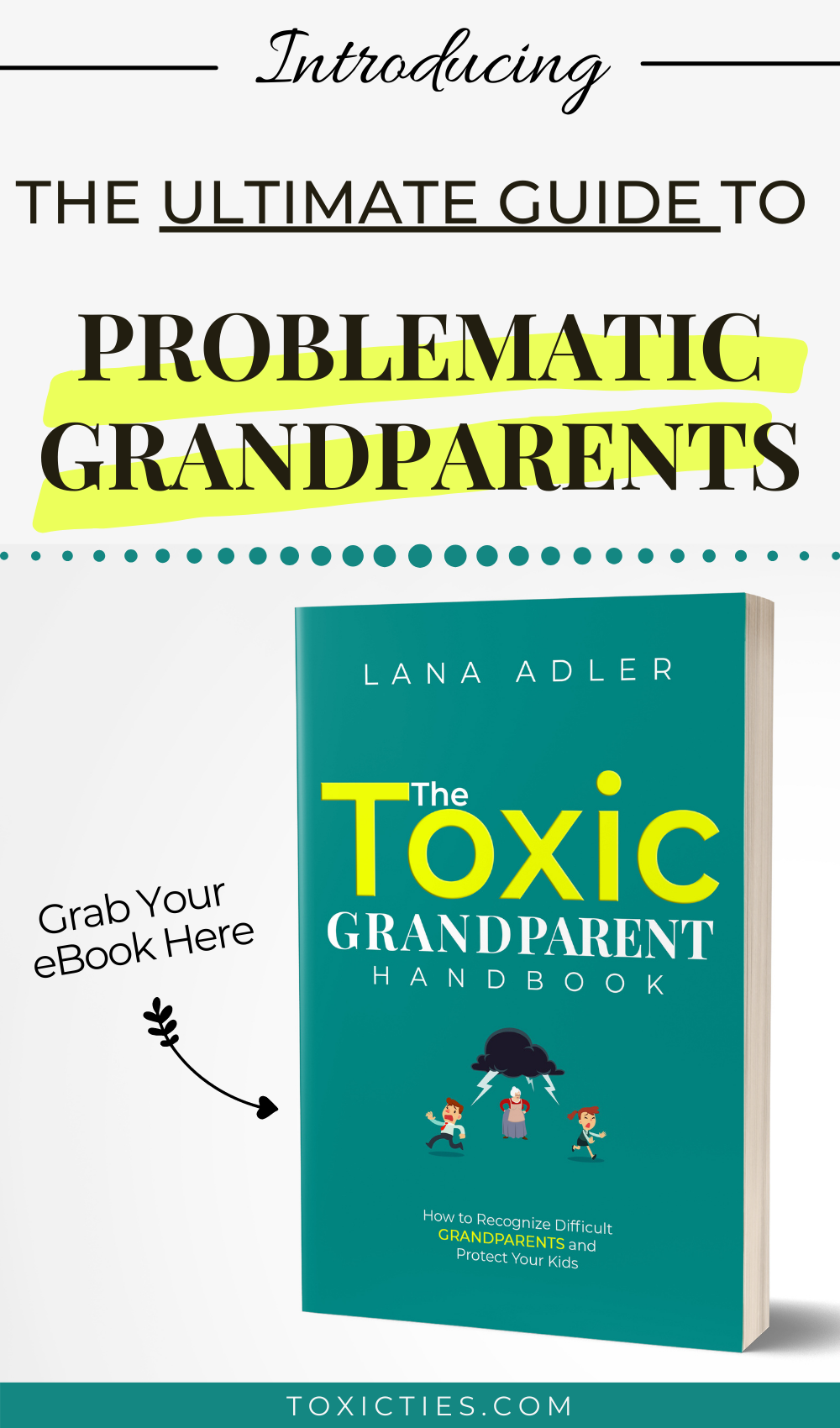Not sure if your workplace is toxic? Here are 10 signs that you might be suffering from a toxic work environment and how to cope with it.
Are you working in a toxic work environment?
Just like a dysfunctional family with a difficult parent or another relative, workplaces may prove to be toxic because of that one pot-stirring employee or a narcissistic boss.
So in addition to workload, competition, office politics, and other work-related stress, you may be dealing with your boss’s tantrums or your colleague’s drama.
A toxic workplace can be one of the most damaging things you’ll experience in your career. The effects are long-lasting and, in some cases, irreparable.
It can leave you feeling burnt out, unmotivated, drained, fearful for your safety or even life, and with no sense of accomplishment. It could even lead to actual illnesses such as depression or anxiety disorders, all because of your place of work!
And it’s not just workers who suffer. Companies with a toxic culture show lower productivity levels because employees don’t feel valued and supported.
So what exactly is a toxic work environment?
Toxic work environment vs. collaborative work environment
The biggest difference between toxic and collaborative work environments is the emotional well-being of the employees.
A collaborative work environment fosters happiness, joy, harmony, kindness, politeness, and cooperation in the workplace.
A toxic work environment, on the other hand, fosters anxiety, stress, depression, health problems, absenteeism, job burnout, toxic work behavior, and ultimately, lowers productivity.
The root cause of a toxic work environment is usually the leadership. For example, a narcissistic boss will bully, harass, threaten, and humiliate his or her subordinates. This type of abusive supervision is counterproductive and often leads to employees leaving the company in drones.
Not sure if the shoe fits your particular situation? Here are 10 signs that you might be suffering from a toxic work environment and how to cope with it.
1. Group Gossip or Cliques
Gossiping is never a good idea, especially when directed at other employees and their work ethic.
If you see people talking more about who gets credit for what instead of focusing on tasks at hand or even just chatting idly between meetings with coworkers, those are signs there might be an issue in the department.
Something as simple as gossip can bring down morale and cause resentment. It may also result in low-quality work because employees don’t feel appreciated or accepted into their roles.

2. Poor Leadership
You don’t leave a job. Instead, you end up leaving poor leadership.
In a toxic workplace, it’s not uncommon for someone to have a fantastic idea, only to be shot down by the manager.
Or worse — the managers don’t communicate well with their team, so there are constant misunderstandings about goals and objectives going on all day long!
Without clear leadership, you never know what your next move should be or how you can meet company standards.
This makes things incredibly frustrating, not to mention, it hurts the company. GBS Corporate reports that most organizations with poor leadership are operating with a productivity “drag” of 5-10%.
3. High Employee Turnover
A toxic work environment can lead to tons of employees leaving.
No matter how hard a company works to attract the best talent, the people won’t stick around if they don’t have a great work environment. Instead, they’ll leave to better opportunities,
The turnover rate in the company is one of the biggest indicators of internal culture. High rates usually mean there are issues with leadership, poor direction of the company, and a lack of meaningful job opportunities for employees.
4. Policies Over People Culture
In a toxic work environment, policies are put in place just for the sake of being policy.
So a typical response to new ideas or process improvements is: “This is the way we’ve always done it.”
As a result, employees who work hard and take initiative are dismissed because it doesn’t fit into the company’s operating policy, while those who do the bare minimum and blindly follow the rules get ahead.
5. No Guidance
In a collaborative work environment, there’s growth and opportunity for advancement because employees get the guidance they need to succeed.
In a toxic work environment, you don’t receive any coaching, training, or mentoring. The employees are left to fend for themselves. In fact, even asking questions is discouraged because it can be interpreted as incompetence or insubordination.
Overall, there is an atmosphere of secrecy and competition that prevents any progress.

6. No Work-Life Balance
In a toxic work environment, you may feel like there is no room for life outside of the office.
You may be required to work late into the night, like everyone else in your office. Or the weekends are often sacrificed to meet deadlines.
When work requirements are all-consuming and unseasonable, that’s a sign that the company you work for is toxic. They value numbers over your well-being and don’t mind burning the candle at both ends.
7. No Constructive Feedback
If communication from your managers and colleagues is almost never supportive and constructive, that’s a big red flag for a toxic work environment.
Constructive feedback is problem-focused and specific. It addresses the issue at hand, not the individual. It also includes praise where it’s due.
Non-constructive feedback targets your personal attributes in a negative way without conveying any support or respect.
For example, “We’ve had a few customer complaints about you. If you don’t get better, we will be forced to take action.”
In this example, the feedback is non-specific and abrasive. It does nothing to help the employee recognize and avoid their mistakes. It also fails to mention what the employee is doing right.
8. Unattainable Workload
Do you feel like your workload is too high, and it’s impacting your quality of life?
Research shows that excessive workload with long hours is the leading cause of stress in the workplace.
In toxic workplaces, employees are often handed too much work that they are unable to complete in a standard workweek.
This leads to chronic stress, frustration, work errors, and exhaustion.

9. No Explanation For the Changes
In a toxic work environment, major changes are not communicated to employees prior to implementation with good explanations for the changes.
The management makes major decisions about the company policies unilaterally and without consideration for how they will affect the workforce. Not only that, they don’t bother to explain the reasons for the changes to make the transition smoother.
As a result, employees feel blindsided, devalued, and dismissed.
10. Pretending You’re One Big Family
In a toxic work environment, it’s common for everyone to say they’re one big family. You’re led to believe that you can tell your coworkers anything and that you all pitch in to get things done, no matter what it takes.
In reality, these are just words. Their purpose is to guilt-trip you into working extra hours or taking on additional unpaid responsibilities because you feel obligated to do so.

What To Do If You’re In A Toxic Work Environment
If you see clear signs that you work in a toxic environment, you don’t have to just accept that. Instead, there are many things you can do to try to make dealing with your situation a tad better.
Talk With HR
Instead of sticking your head in the sand and just waiting for the situation to get better, talk with HR.
This is a good start. They can help you understand what’s going on or look into the issues you’ve pointed out.
Focus On the Positives Instead Of Gossiping
Instead of gossiping with your coworkers about what’s wrong with the company, focus on what’s right. I know it’s easier said than done but try not to amplify the toxicity by constantly talking about it.
Even if you work in a toxic work environment, there’s gotta be some positives, right? Maybe a good salary or some colleagues you genuinely like?
Don’t let the negativity at work change you into a person you don’t want to be.
Don’t Take Your Work Home
Remember, your job is not your entire life. You can separate yourself from a bad work environment.
Try to have a moratorium on “work talk” at home. As much as it relieves you to vent your anger by talking about it, it will have a negative effect on your home life.
And for god’s sake, don’t take your stress out on your loved ones.
Take Your Vacation Days
Even if you feel like it’s not the best time to go on vacation, take time off. This will allow you to get some much-needed rest and recover from toxicity at work.
Taking a break can also allow you to get a better perspective on what’s going on at work and decide what to do next.
Try to Have More Work-Life Balance
In our culture where being a workaholic is a virtue, people spend countless hours at their offices or other workplaces. That means that many of us spend more time with our colleagues than our loved ones at home.
Even in a good work environment, it can create fatigue and frustration with your “work family.” But in a toxic work environment, such frustration can quickly devolve into burnout.
Keep the Records
If you’re dealing with a particularly unpleasant colleague or an abusive boss, they may cross the line into illegal actions.
So in the event of a lawsuit or some other legal issue, make sure you keep a record of everything — emails, notes, conversations.
Write down the dates and the content of the communications, and if possible, have witnesses around. All of that can be extremely useful if you need to protect yourself from libel, harassment, or unlawful termination.
See It As Useful Practice
Sometimes in life, we have to deal with toxic people. And the one common thing about them is that you can’t change them and you can’t expect them to behave differently.
The only thing you have control over is how you react to them. So see your dysfunctional workplace as an opportunity to learn how to deal with toxic people while empowering yourself.
Look For A New Job
If there isn’t any hope of the situation getting better or you just feel like it’s not worth fighting for, look for another job.
You might even want to consult with a career coach about what skills and abilities you can market to find a better work environment.

Conclusion
A toxic work environment is never suitable for anyone. It affects the company’s productivity and the bottom line. But more importantly, it affects employees and their personal lives.
If you feel like you’re stuck in a toxic workplace that has no chance of getting better, then it’s time to start looking for something new.
It may be scary to make a change, but ultimately, remaining where you are may cost you dearly. The price you pay is your mental, emotional, and physical well-being. You deserve to be happy and fulfilled in a place of work.
Ready to learn more signs of a toxic work environment? Read how to recognize if your boss is a malignant narcissist.

References
Anjum, A., Ming, X., Siddiqi, A. F., & Rasool, S. F. (2018). An Empirical Study Analyzing Job Productivity in Toxic Workplace Environments. International journal of environmental research and public health, 15(5), 1035. https://doi.org/10.3390/ijerph15051035
NEXT
Top 10 TV Shows Featuring Narcissistic Male Characters








Leave a Reply